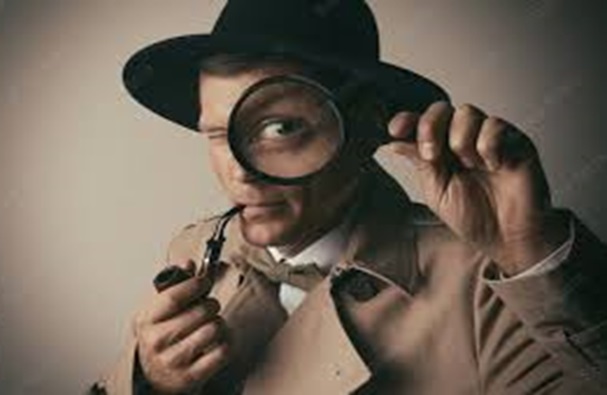Opinion/Editorial
THROUGH THE LOOKING GLASS
Human beings believe that they have such significant skills in recalling what they’ve seen and heard that millions of people, over hundreds of thousands of years, have been executed for supposedly having been seen or overheard breaking social rules of conduct or violating belief systems. Recent studies have concluded that even when being intent on describing the accurate truth of almost any occurrence or conversation, human beings are terrible at recognizing and then modifying social rules to account for almost any new-found fact.
I know this kind of conclusive and exhaustively studied data is difficult to accept in our lives. I remembered falling into a deep cistern located near a beach on an island in the middle of Lake Michigan and being pulled out by my father who had to lower himself down on a rope to get me. The operation took a while, so the family gathered at the top of the cistern. My mother had a new Argus camera with which she took photos of the rescue. Only two years ago, 70 years later, were those old photos found and brought out to be viewed. I was shocked to the core when I viewed the photos. I was in most of them. Watching. Watching my brother being retrieved from the bottom of the cistern. Even viewing those photos today, I have a great deal of trouble attempting to modify the “memories” I have of my being pulled from the bottom of that well. Along with inaccurate memories human beings suffer from that second ailment.
Humans cannot easily change beliefs based on those memories. Our memories, and failure to modify memory information even in the face of stark physical proof otherwise, extends to the sociology of our species as well as the psychology. For example, the entire American culture is fully informed about the fact that the U.S. went to war with Iraq based on lies told to and by its leaders. Have reparations been made or considered for the resultant act of killing hundreds of thousands of people (plus losing a bunch of our young men and women) because we attacked with great violence for something that the country, and its leadership, never did? Television has been the single most pervasive invention to affect mankind in all of history. It is pervasive in bringing audio and visual signals from anywhere in the world at any time and putting them right in front of every human on the planet who owns or sees a television set (and the average American family owns three sets, while one is the average for the rest of the world’s population). Television has proven to be an excellent source for creating beliefs by presenting hard data but also in shading or adding opinions to the data as it’s presented. Television has not proven to be nearly as successful in changing beliefs.
Today, despite factual reports following 9/11 demonstrating that the amateur pilot terrorists were all from Saudi Arabia, the watching public believes they were from Afghanistan or Iraq. Change does not come easy when it requires the modification or deletion of already established information earlier believed to be valid. Despite the photos my mother took back on South Manitou Island I still see myself stuck down at the bottom of that cistern looking back up at my dad lowering the rope to rescue me. What is humanity to do in coming to understand that our observations are filled with inaccuracies and downright misinformation? First humanity, in its entirety, has to accept that these inherent failures in perception, observation, and communication are there all the time in all of us and they are extremely difficult to account for and react to.
Is our humanity’s survival to be based on belief in what others might be telling and showing us or is it to be based upon the now-known fact that we must question everything we see, hear, or gain information from through our other senses (very intense cold feels very intensely hot to our sense of touch).
When flawed human perceptions lead to mass slaughter and death, as has happened so many times in the past, and is happening as this article is written, we must all spend much more time in analysis and consideration before taking violent action. The television, radio, computer, and personal cell phones and pads we all carry today must not be accepted as purveyors of scientific fact, any more than humans can allow themselves to continue to express with vehemence that what they see and hear as being the absolute truth. If the species cannot do this then looking into the proverbial looking glass will give us a reality, we are not ready to accept.







